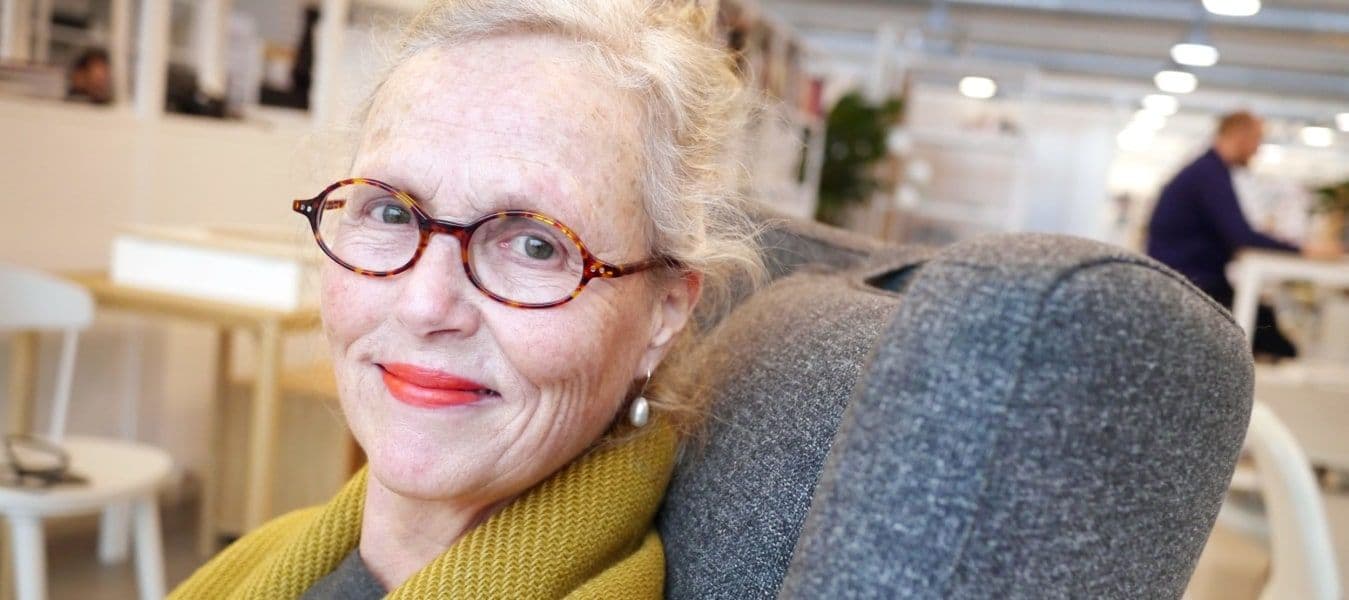
A personal struggle led to a more caring design
Six years ago something happened that changed Britt’s life, and also the way she looks at design. She had a stroke. With her own experience of overcoming obstacles at home during recovery, she started working on the thoughtful collection OMTÄNKSAM.
Britt Monti takes a seat in a grey armchair by the big windows in the design department in Älmhult. At first sight, the chair doesn’t look that different from a traditional upholstered wing chair—the timeless design that has been around for 300 years. However, the chair Britt is sitting she describes as a more “caring” chair, and she is more than happy to describe why.
“I think it is a human right to get in and out of a chair, even if you are in a stage in life when your physical capacity is limited. This chair has lumbar support which helps you sit comfortably. The seating position is higher and more upright because if the seat is too deep and you have to reach out for the armrests, it is more difficult to get up,” says Britt.
As a Creative Leader at IKEA, Britt works with forecasts and global trends. As the demographics of the world change, so do the demands on our homes. For many years, report after report has shown that as the population grows and people also prefer to live at home longer. Britt asked herself what IKEA could do to meet future needs. But one day something happened that changed Britt’s life, and also the way she looks at design. She had a stroke.
She faced a long recovery, which turned out to be the beginning of the OMTÄNKSAM collection. Now she experienced herself what it takes to overcome the everyday obstacles that make it difficult to enjoy an independent life like getting out of a chair, opening a lid or eating without help.
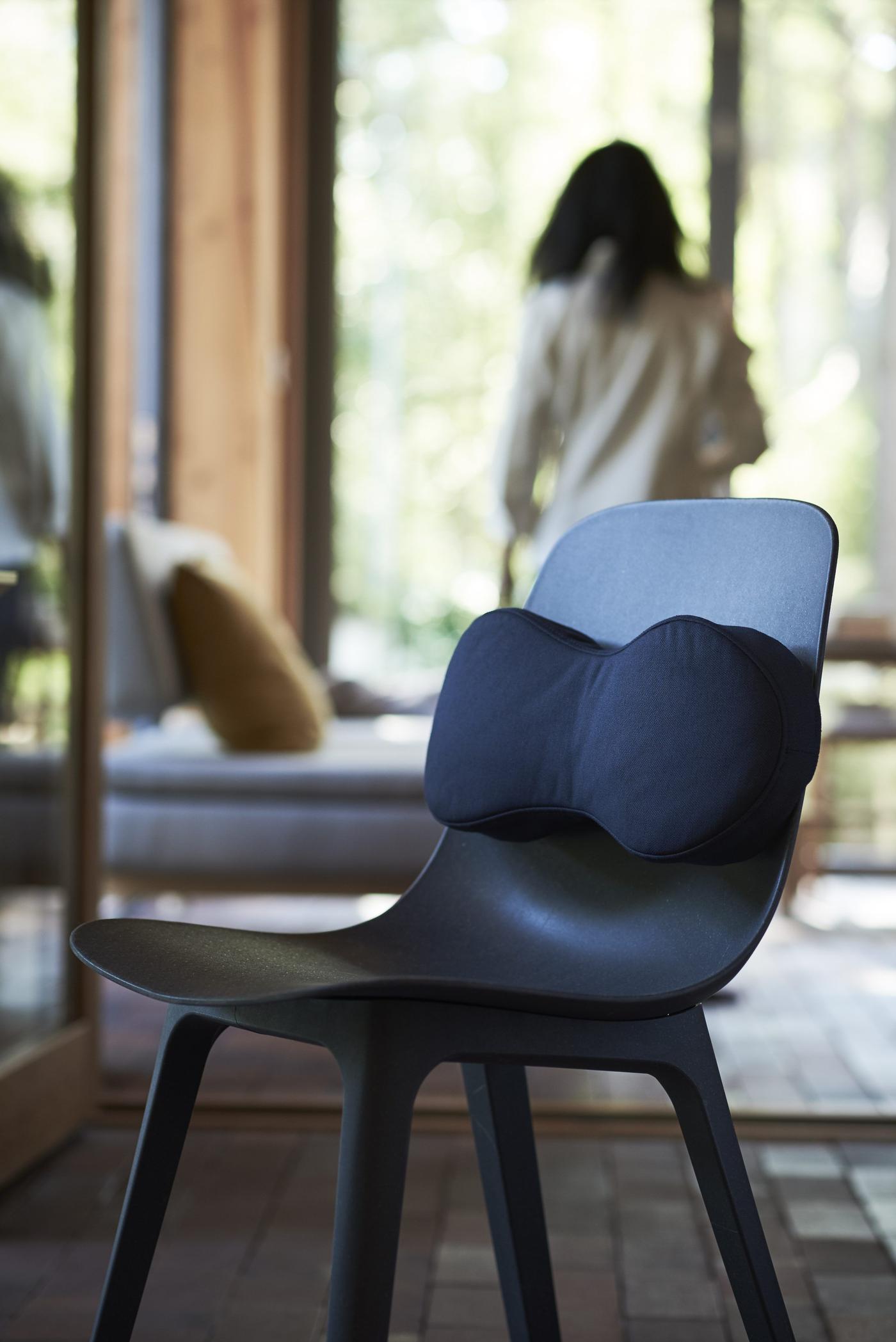
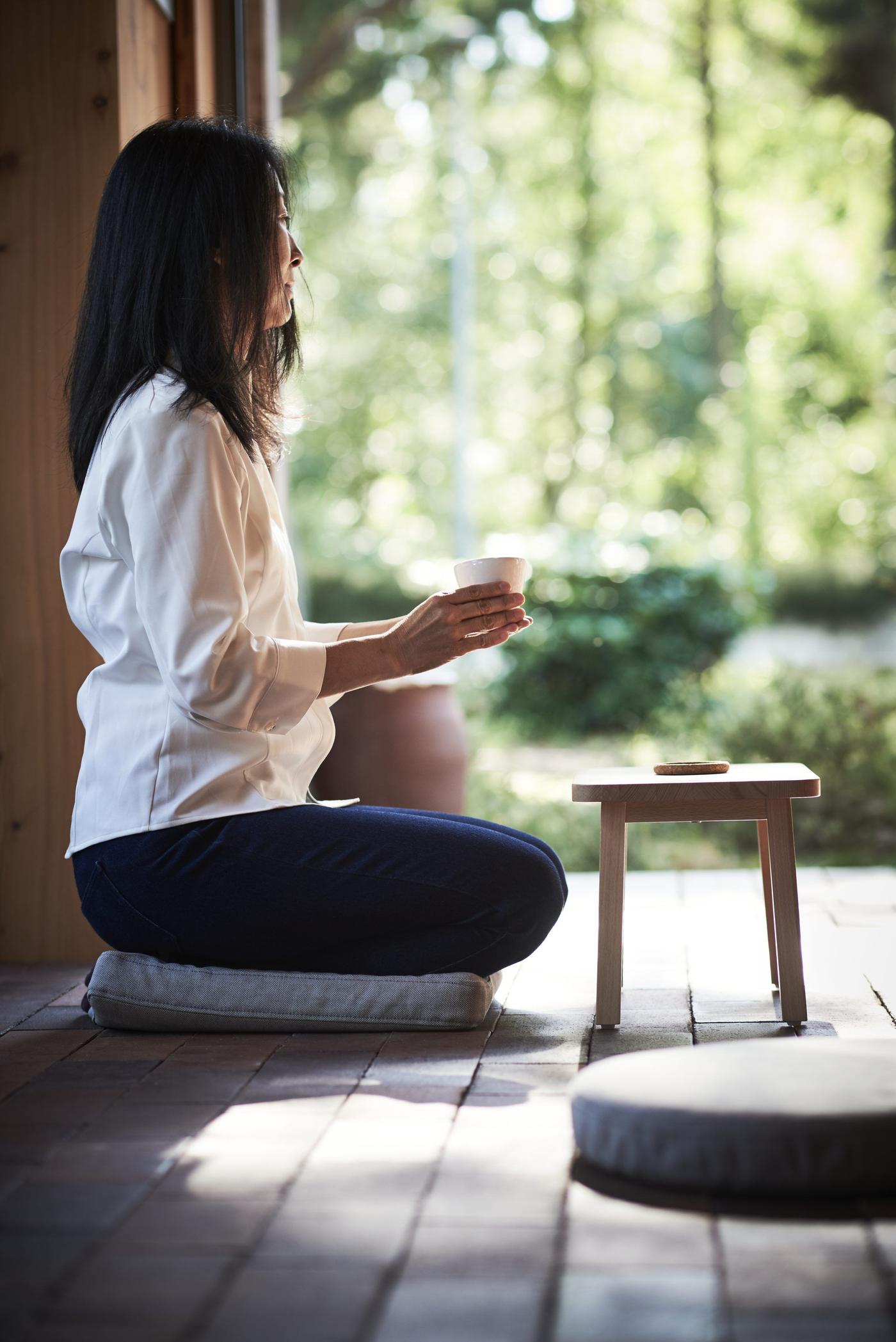
“My life was filled with challenges. I went from a fully independent life to not being able to get out of the bed or hold a cup of coffee. A rehabilitation therapist came to my home and offered to install equipment and make adaptations, but I said ‘no thanks’. I didn’t want my home to look like the hospital I just left,” says Britt.
The OMTÄNKSAM collection—including, for example, cushions that provide support, table and chairs, an easy to grip vase, and jar grippers that help you unscrew lids—is developed in collaboration with ergonomists and physiotherapists. The products have lots of hidden features to add comfort, function and safety and is the result of looking at the needs that might arise when our physical circumstances change, temporarily or permanently. Britt calls it inclusive design.
“OMTÄNKSAM means ‘thoughtful’ or ‘caring’ in Swedish, and to me, the word includes the small things you do to look out for the comfort or welfare of others. This is a collection that adds extra comfort and functionality for all individuals with different kinds of functional needs – from children, pregnant woman, people with back pain or suffering from rheumatism or arthritis to the elderly,” says Britt.
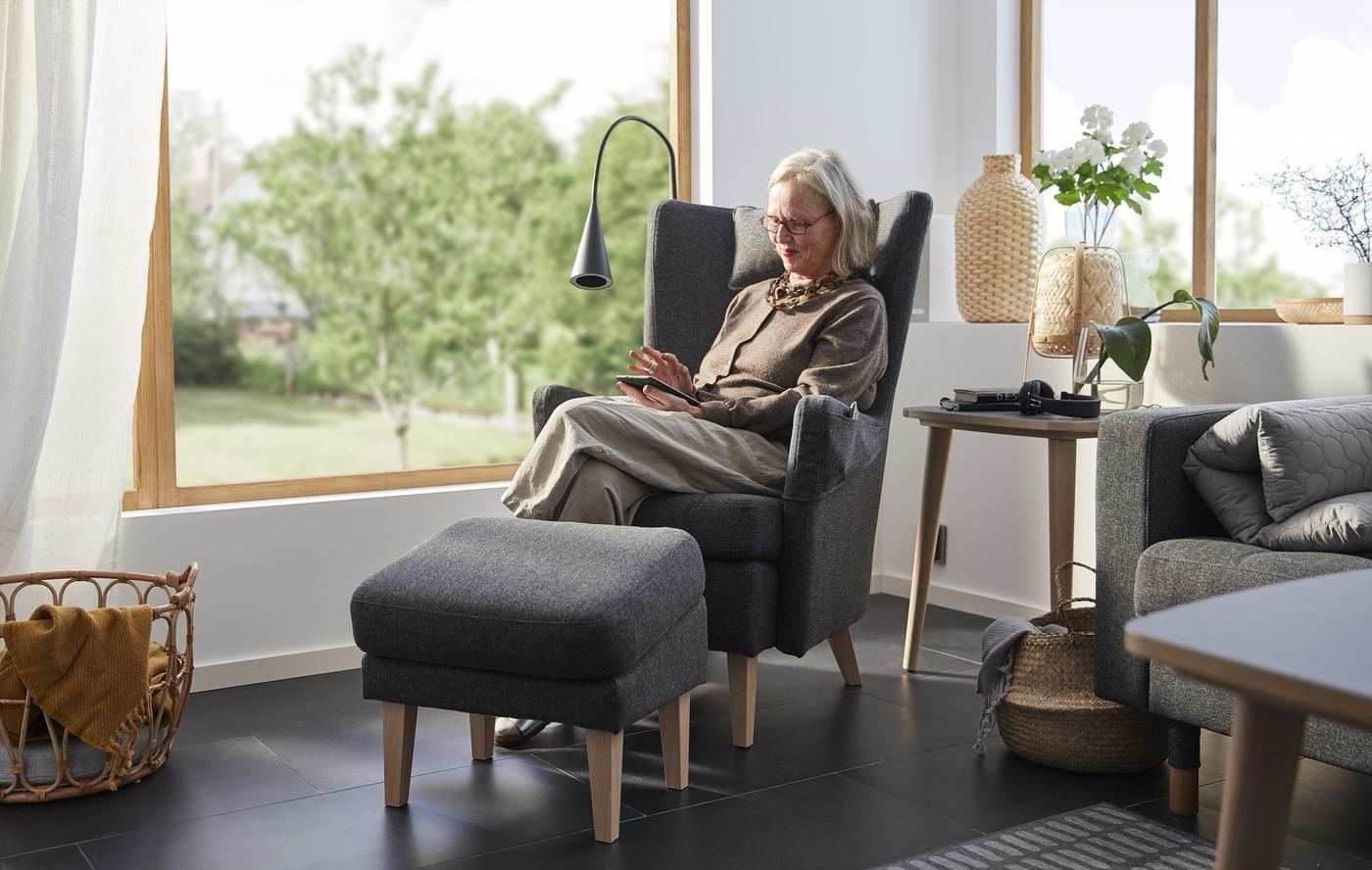
Where in your home did you feel most limited?
“I found it difficult to grip and hold on to things, so I had major problems everywhere in my home. I also believe the bathroom is a place that very quickly becomes limiting. Often everything is in white and can be slippery.”
The collection contains 22 products. Any idea that didn’t make it all the way that you hope to see in the future?
“We have some prototypes that didn’t make it all the way for different reasons. Hopefully we one day can offer the brilliant cutting board with several safety functions, where you can cut a cucumber with one hand. The collection includes all dimensions of Democratic Design — form, function, quality and sustainability at an affordable price, and some products would have cost too much.”
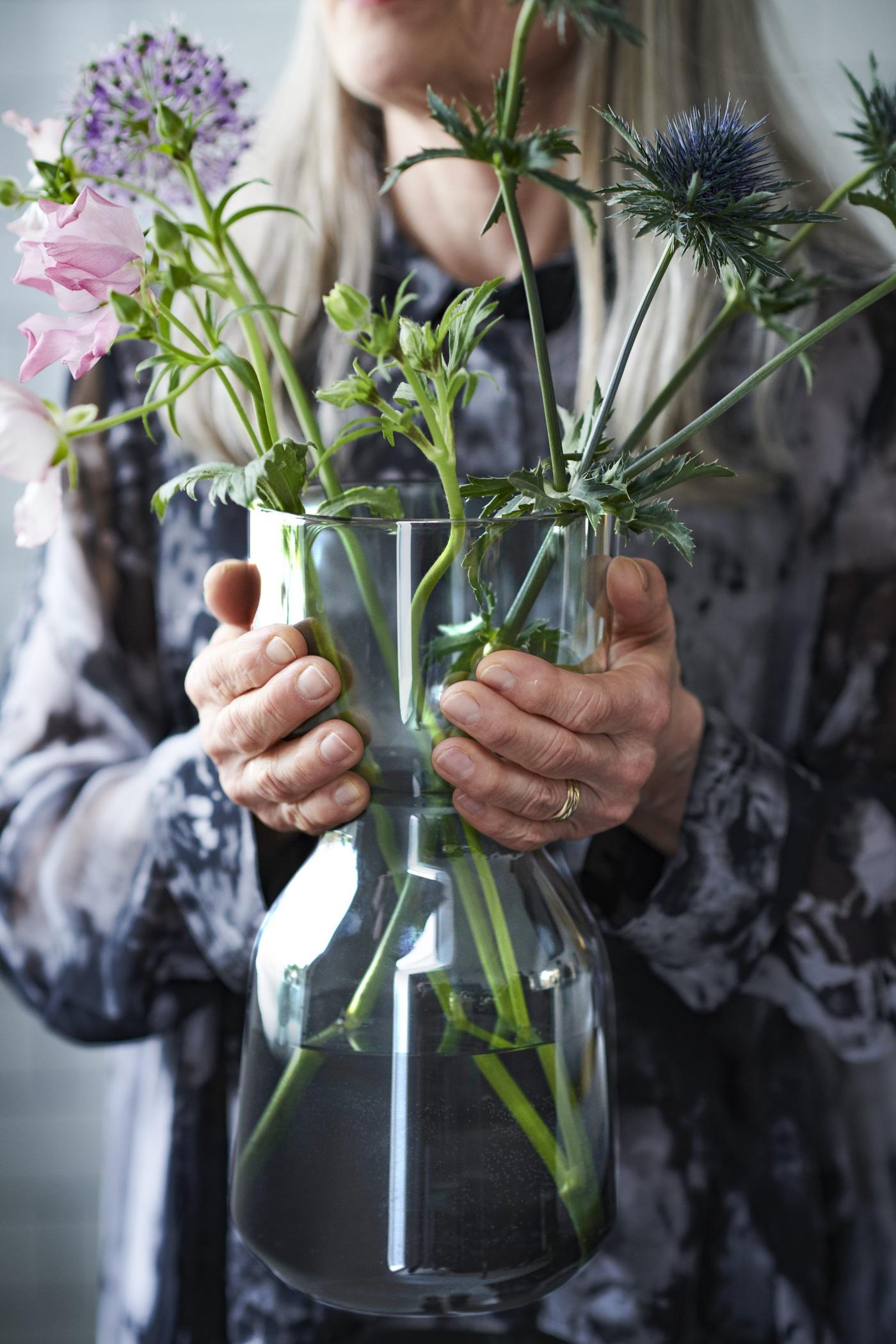
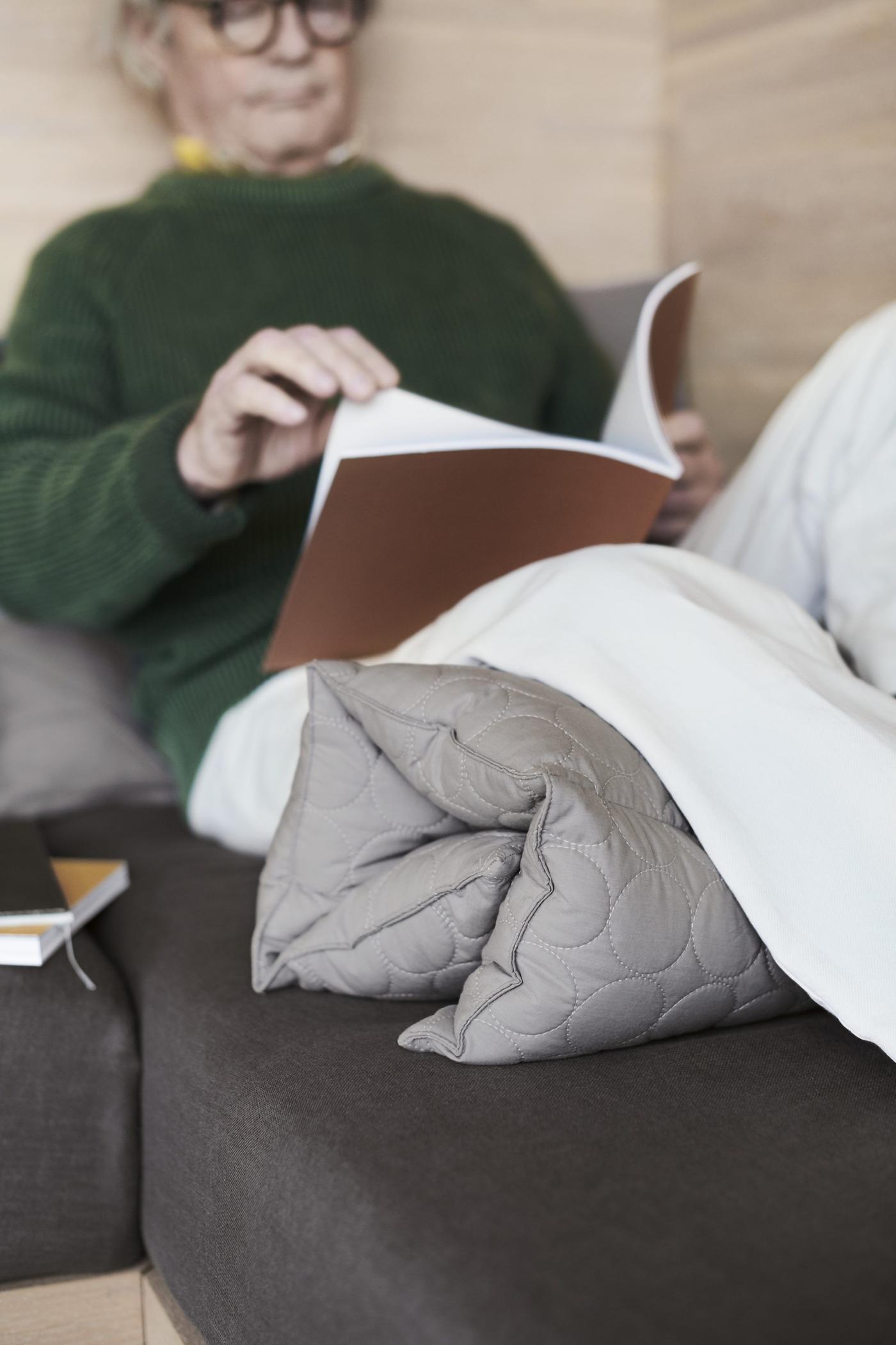
What do you think we will need in the future to enjoy an independent life at home?
“Even more flexible furniture, like height-adjustable furniture.”
You test launched some of the products in Sweden and Japan. What did you learn?
“People in Japan were very excited when we started selling OMTÄNKSAM last year. Japan has a growing population and many are taken care of by relatives at home, and we know that the different support cushions were very popular.”
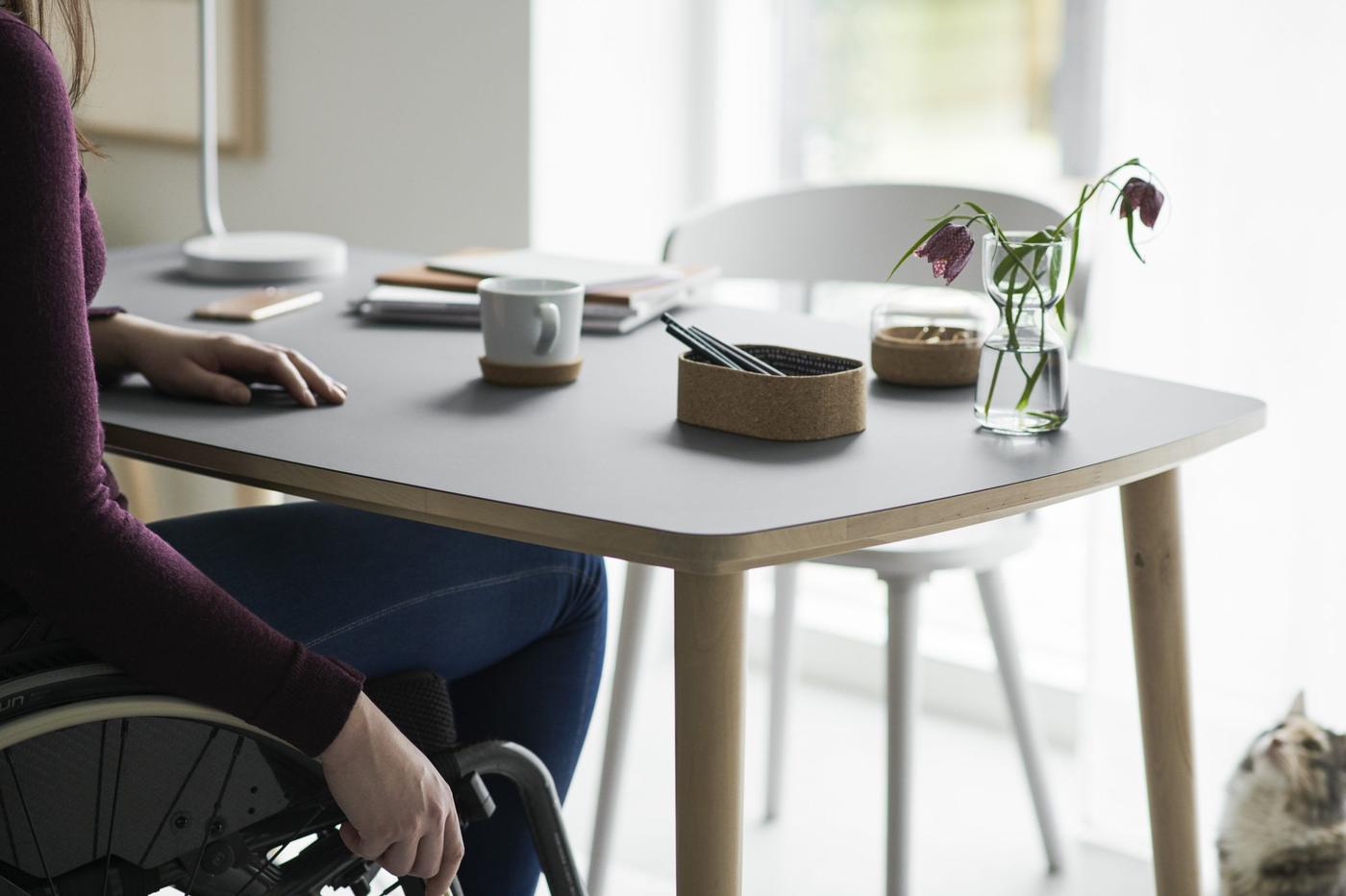
OMTÄNKSAM will be in stores May 2020 and is designed by Knut Hagberg, Marianne Hagberg, Johanna Lagercrantz, Iina Vuorivirta, Amsell/Berlin and Ehlén Johansson.